Adverse events should be reported. Reporting forms and information can be found at www.yellowcard.mhra.gov.uk or search for MHRA Yellow Card in the Google Play or Apple App Store. Adverse events should also be reported to Nova Laboratories Ltd, Martin House, Gloucester Crescent, Wigston, Leicester, LE18 4YL Email: qa@novalabs.co.uk
Indication
Jayempi (azathioprine) 10 mg/ml oral suspension is indicated for use in the treatment of moderately severe to severe forms of chronic inflammatory bowel disease (Crohn’s disease or ulcerative colitis) in patients who require but do not tolerate glucocorticosteroids or in patients of which the disease is not treatable by other means of first choice.(1)

Why a liquid suspension?
The need for a liquid azathioprine has grown as the incidence of paediatric IBD continues to increase.(7,8)
For young children, liquid formulations are the preferred choice for parents and healthcare professionals alike.(9) They provide a convenient method of administration for children as they are easy to swallow(10,11,12) and Jayempi’s sweet banana flavour reduces fussiness and improves treatment adherence.(1,3,5,13)
Jayempi’s liquid formulation also provides maximum dosing flexibility compared to solid, single-unit dosage forms over a wide age range.(3,4,14)
In a bioequivalence study, Jayempi demonstrated no clinically relevant difference in the blood concentration of the active metabolite mercaptopurine, compared to azathioprine tablet.(15) Therefore, no differences in the safety or efficacy are expected between the liquid and tablet formulation.(1,15)

Personalised dosing
Polymorphisms in the genes that encode the various enzymes involved in the metabolism of azathioprine may predict adverse reactions with azathioprine therapy.(1) Therefore, routine genotype/phenotype testing of thiopurine S-methyltransferase (TPMT) and nudix hydrolase15 (NUDT15) is recommended before initiating Jayempi to optimise treatment outcomes.(1,16,17,18,19,20,21)
Dose adjustments may be required following phenotype/genotype testing.(1,16,22,23) Making dose adjustments with solid oral formulations, for example, by splitting or crushing an unscored tablet, can result in dosing inaccuracies, as the active ingredient may not be uniformly distributed throughout the tablet.(3,4,24)
Efficacy and safety
Jayempi is an effective long-term IBD treatment, particularly for those patients in which steroids have failed or who are seeking to avoid continued steroid treatment (steroid-sparing).(6,26) The use of Jayempi can delay or avoid escalation to biologic treatments and surgery/colectomy.(6)
The most important adverse reactions of Jayempi include: bone marrow depression, most frequently expressed as leucopenia and thrombocytopenia; viral, fungal and bacterial infections; liver injury; hypersensitivity; Stevens-Johnson syndrome and toxic epidermal necrolysis.(1,27)
Most adverse events occur within four months of beginning azathioprine treatment, suggesting it is likely to be well tolerated beyond this period.(6)
One in ten people may experience nausea, vomiting and loss of appetite, flu-like symptoms with fever, and general aches and pains or diarrhoea.(1,27)
Patients should be advised to contact their healthcare professional should they experience any sign of infection, unexpected bruising, bleeding or any other signs of myelosuppression.(1)
Mode of action
Jayempi (azathioprine) is an inactive pro-drug of 6-mercaptopurine (6-MP).(1) It has a multistep metabolic process into active and inactive metabolites. 6-thioguanine nucleotides are the active metabolites, which act as a purine antagonist and inhibit B and T lymphocyte activity via inhibition of DNA and RNA synthesis.(1,33,34) Azathioprine is a slow acting drug, and typically takes three months of therapy before a therapeutic effect is observed, although the toxic effects may occur any time during treatment.(22,35) It is therefore important to ensure the patient is educated on the importance of adherence to treatment.


View all Jayempi® IBD clinical information in one place
Downloads
These downloads (other than the HCP brochure) are only for use with patients prescribed Jayempi®.


